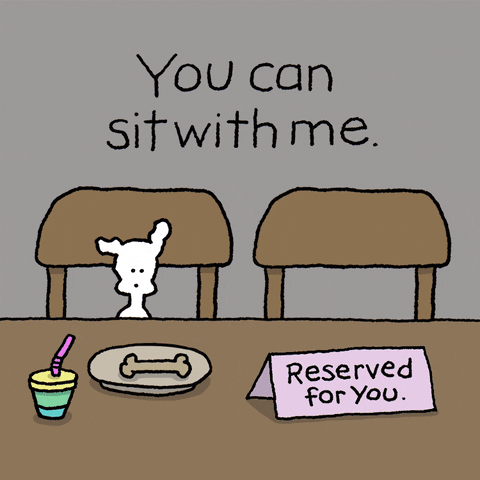
My exercise routine has been all over the place since the start of the year.
Having been sick with the flu for a chunk of January, I would have been the least popular person ever if I had turned up at the gym with a snotty nose and began spluttering all over the equipment. And then I was away on holiday during the latter half of February into the beginning of this month.
I didn’t take time off from exercising completely; I did the odd run here and there, but I missed being in the gym, and particularly being in my gym.
Yet, something has dawned on me having returned from my holiday that while I was missing the gym facilities, the routine of a workout program, and the enjoyment of simply moving my body, I really missed the people there. And this led me to think more about some of the different types of connections that we build with others.
When I reflect on my first year in Hong Kong, I am reminded of the craziness that comes with starting a new job, and all of the complexities of moving somewhere new, but I also have some stark memories of how hard it felt to make friends.
And I mean at times it felt really hard.
This wasn’t through a complete lack of trying, and I was meeting people, but as someone who identifies as an introvert, I found that following a long day at work, the last thing that I wanted to do was socialise. Instead, I needed time and space to decompress, sit in silence, and just be for a while.
However, it was at about the six-month mark when I realised that a few things felt off; to summarise, I was unhappy and I knew that a part of this was down to feeling lonely.
It feels like a lot has been already written about how making friends can become more challenging as we get older, particularly during our late 30s and 40s. It is during this period where we may experience a reckoning with friendships, as
writes in :A bunch of seismic events (big losses, ageing parents, divorces, illnesses) that challenge and clarify friendships… but [there’s] still just not a ton of space/time for cultivating new ones.
I certainly wanted to cultivate new friendships and in those early months after my move; I connected with some people at work, but for various reasons related to location/commute, family situations, and circumstance, it often felt difficult to make concrete plans to get together. And it was only when things began to settle at work that the loneliness hit me hard. Yet, I was also aware that I had to be the one to change things. In a way, the acute loneliness became a call to action.
Therefore, I decided to spread the net; I joined a local book club, which was great before it moved to another part of the city, and I also became a member of a women’s association, although this was not quite as open-minded and welcoming as I thought it would be.
At times, I felt torn between respecting my levels of energy/bandwidth for socialising and having the sense that I smelt of desperation. Please – be my friend!
But then I came across an advert for a female-only class-based gym and signed up for an introductory pass. A bit like when I started my new job, it took some time to adjust to this new environment as well as the (sometimes punishing) workout routines. Yet, as I neared the end of my first full membership block, I noticed something shift – I felt better. And I know that part of this can be attributed to the connections that I made.
I could bang on here about some of the friends that I made at that gym, how wonderful they are, and how my life vastly improved after I joined blah blah blah… but only some of that would feel true. And while joining that gym did improve my life in many ways, it still wasn’t a magical panacea, especially when it came to my feelings of loneliness.
However, I have realised that a lot of what I enjoyed about going to that gym and the facility I attend now actually stems from the feelings I experience when I think about connections of a different variety, or what the sociology professor, Mark Granovetter called weak ties.
Granovetter distinguished between ‘strong ties’ and ‘weak ties’ – the former referring to those people who are within your inner circle and you have a close bond with, versus those individuals who you see less often, and you may describe as an acquaintance. Some of Granovetter’s research focused on the examination of weak tie encounters in the business world and here, he found that weak ties can be beneficial for the sharing of new ideas and business contacts. Networking fits within this context - I know that I have a weak tie connection to thank for supporting my application in a previous job.
However, research also suggests that weak ties can support our wellbeing. We may boost our levels of happiness with casual interactions such as bumping into a neighbour, chatting to a person in a shop, or to someone in a gym class. This is something that I can relate to. For example, when I attended my first group session back at my current gym following my holiday, I got a warm hug from one of the women as well as a few fist pumps from the men. I don’t socialise with any of these people (at least right now) outside of the gym, but it felt like I was being welcomed back into the fold.
For many years I felt that strong ties were the only type of connection that mattered, particularly when I have felt lonely, but the older I get, I recognise that weak ties can offer something unique - there can be less pressure to perform which means that they offer lower stakes for all involved. And as much as being an introvert often requires me to slow down and recharge my batteries after socialising, I do enjoy a bit of small-talk. Plus, there is something refreshing and liberating in acknowledging that not all interactions have to go further than a hello and wave, or beyond a quick catch up while filling up your water bottle.
This isn’t to say this change in mindset means that I don’t want to develop strong ties (inside and outside of the gym), far from it, but I know that I need those weak ties just as much. In their own way, weak tie encounters provide me with comfort while still allowing me to be myself.
Thanks for taking the time to read this post. All content is currently free, and if you liked what you read, please consider forwarding it to a friend, giving the heart a squeeze, or even leaving a comment. It means a lot - thank you!
Sarah
If you would like to read more about some more of my experiences with exercise and the gym, here are two posts that wrote last year:
Additional References:
Leslie, Ian. (2020, July 3). Why your ‘weak tie’ friendships may mean more than you think. BBC Worklife.






The idea of weak ties makes me think of single serving friends (from Fight Club). There really is something freeing about having people like this in your life. They let you just connect in different ways. Thanks for the post.